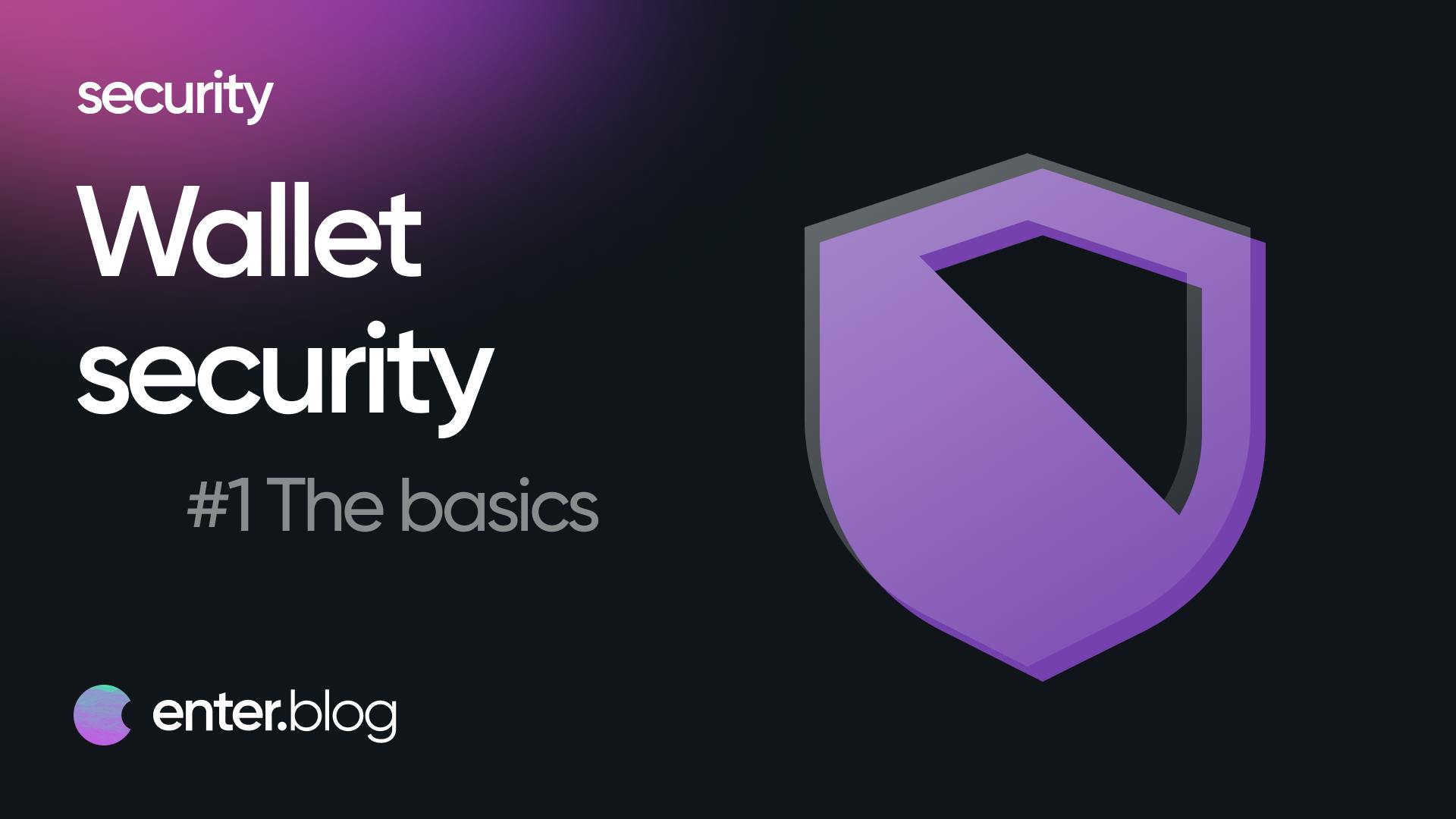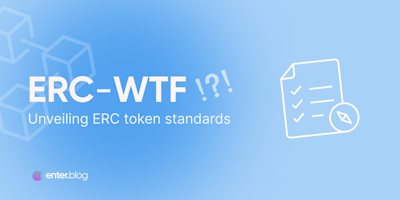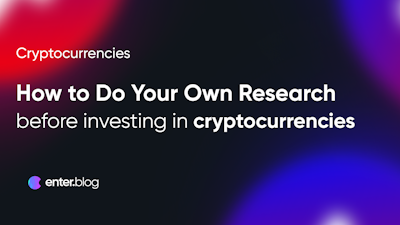
Wallet security #1
Getting your first wallet can be an uneasy and scary experience. This article takes you through the basics for a safe start in the NFT space.

The worst feeling in the world is waking up and finding a 0.0000000 balance in a crypto portfolio that’s taken you years to build.
The realization of losing what could potentially be hundreds of thousands or even millions of dollars due to security compromises and lackadaisical information storage is an issue most people overlook, especially those being new to the space. Being dusted has taught me that keeping your information safe isn’t as easy as people think.
Right now, the entirety of the crypto space is much like the wild wild west in terms of regulations and out-right “snake oil salesmen” or scammers. In this infantile stage of the space, so many people are prone to being "dusted", giving their passphrases away, getting hacked due to low internet security, and straight-up falling for scams.
The truth is that we have become lazy and dependent on others to keep our information safe and that's where we fail. Instead of looking at wallets the way we look at them now, we should start treating our wallets like “Fort Knox” and banks themselves.
When you think about how crypto works, we’re essentially cutting large financial institutions out and reaping the benefits of doing so. If this hasn’t been realized by the reader, this is the “Greatest Redistribution of Wealth” that will happen in our lifetimes. There are about 50 - 70 million daily active users of cryptocurrency, meaning that if you’re invested now, you’re in the .01% of people who are Hodling out of the entire population on the planet. Realizing that this is a revolution of sorts, creates great chances for an opportunity, but it also creates momentous chances of bad-faith actors taking advantage of those who don’t fully understand things like network/internet security or just fail to do their research.
There are a few things I would suggest everyone personally do to keep their information safe.
- For the love of God, never give your passphrase out to anyone. NO ONE SHOULD EVER ASK FOR IT. I would suggest never copying and pasting it anywhere leaving a digital copy on your clipboard. Always write down your passphrases by hand and keep them in a safe place where no harm can come to them.
I was dusted when I had malware on my computer, and I had copied and pasted my passphrase when moving a wallet from one wallet provider to another. My passphrase was then sent automatically by the spyware. Scammers and hackers are evolving with the security practices as well, so that means we must take it upon ourselves at this point in the space to make sure we keep our financial information safe. - Never, ever leave your wallet open after you complete a transaction on any platform or exchange, including PancakeSwap and the like. After being in the space for 8+ years, I’ve heard horror stories of people walking back to their computer and their wallets being emptied overnight while being open on their desktop. I would think about it this way. Would you leave your wallet or purse open? Or do you put it away after every use?
Not only that, make sure if there are extra security measures like 2fa or passwords available, enable them. You’re protecting your own personal bank. I know that taking extra steps seem like a hassle, but I promise you it's worth it. - Never use the computer you store your wallets and financial information on to browse adult content, click on suspicious links, or access what could be considered sketchy information. Adult content is filled with spam and advertisements that have background processes that will try and access your wallets or get your passphrases. This is probably the most common way people lose their crypto without even realizing it.
If you don’t know where something comes from, or can’t verify the sender of an e-mail, be suspicious. Some of the most prevalent scams in the space are “giveaways” where you send a specified amount, and they say they will send a larger amount back. So many people fall for this.
Also, be wary of who you converse with on social media and apps like Discord and WhatsApp. Bad actors are becoming increasingly crafty in their ways of conning people out of their crypto.
But the main advice I would give is, “If it's too good to be true then it probably is”. Research what you want to invest in. No one is giving away free crypto. Those days are over now that bad faith actors are devising smart contracts to dust your wallet. Airdrops will become a thing of the past due to the intensity and scope of the newly made tokens that are designed for nothing but malicious behavior. - Always evolve in your knowledge of the space and keep up to date with all your wallets and software. The best thing that you can do is get yourself a hardware wallet that supports the coins you are invested in. Being able to take your private keys off the blockchain is probably the most lucrative thing to me about cryptocurrency. This essentially gives you “physical” evidence that you own those keys, and no one can take them away from you once removed from the blockchain. I would consider hardware wallets to be the ultimate defense against any of those bad-faith actors, scammers, and potential malware that could be out there. Keep in mind physical threats like water and fire when storing your written or hardware wallets. Keeping them in a fire/waterproof safe or lockbox would be my recommendation, as we cannot predict natural disasters.
- DYOR: Do your own research. Don’t ever rely on anyone else to make your decisions for you. Take emotion out of the equation. As much as this sounds redundant, this is the biggest key to your financial future. Collecting as much information you can google and get your hands on will make your journey that much easier. Equipping yourself with knowledge will give you the best chance of survival in this "wild wild west".
More than anything else. I think the most important thing I would suggest to new and old users is not to allow yourself to be lazy about how you store your personal information. The crypto revolution will be extremely disrupting in how we store, view, and possibly get paid for the information we give away freely daily. Knowledge is power. Sounds stupid, but being able to control the dissemination of your information and being mindful of the physical and digital environment around you will put you leagues ahead of others in the space. Being mindful of how your data may be accessed or used should be something that should be in the back of your mind when dealing with your financial assets.
Crypto & Learning
Hungry for knowledge? Here you can get acquainted with blockchain, wallet security, DeFi and much more.

PUBLISHED 8TH SEPTEMBER 2023
ERC-WTF: Unveiling ERC Token Standards
This article embarks on an in-depth exploration of the realm of ERC token standards, shedding light on their significance, diving into their intricate facets, and envisioning their potential integration beyond the confines of the Ethereum framework.





.png?w=400&fit=max)